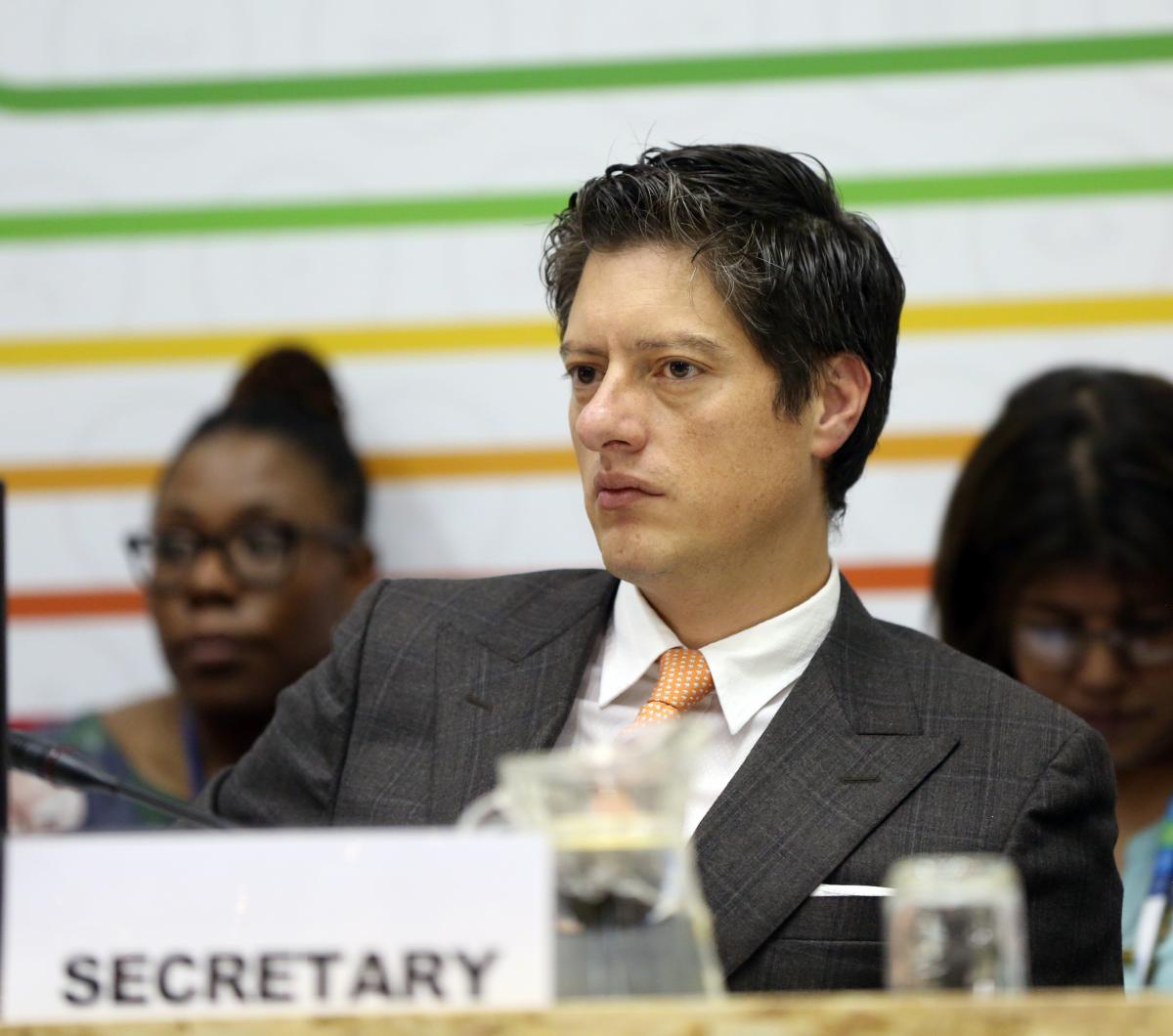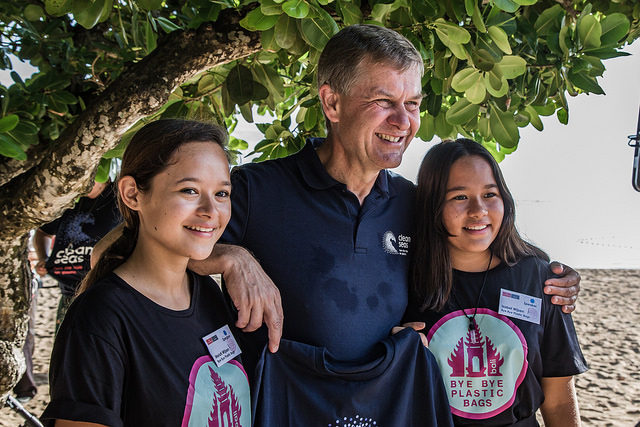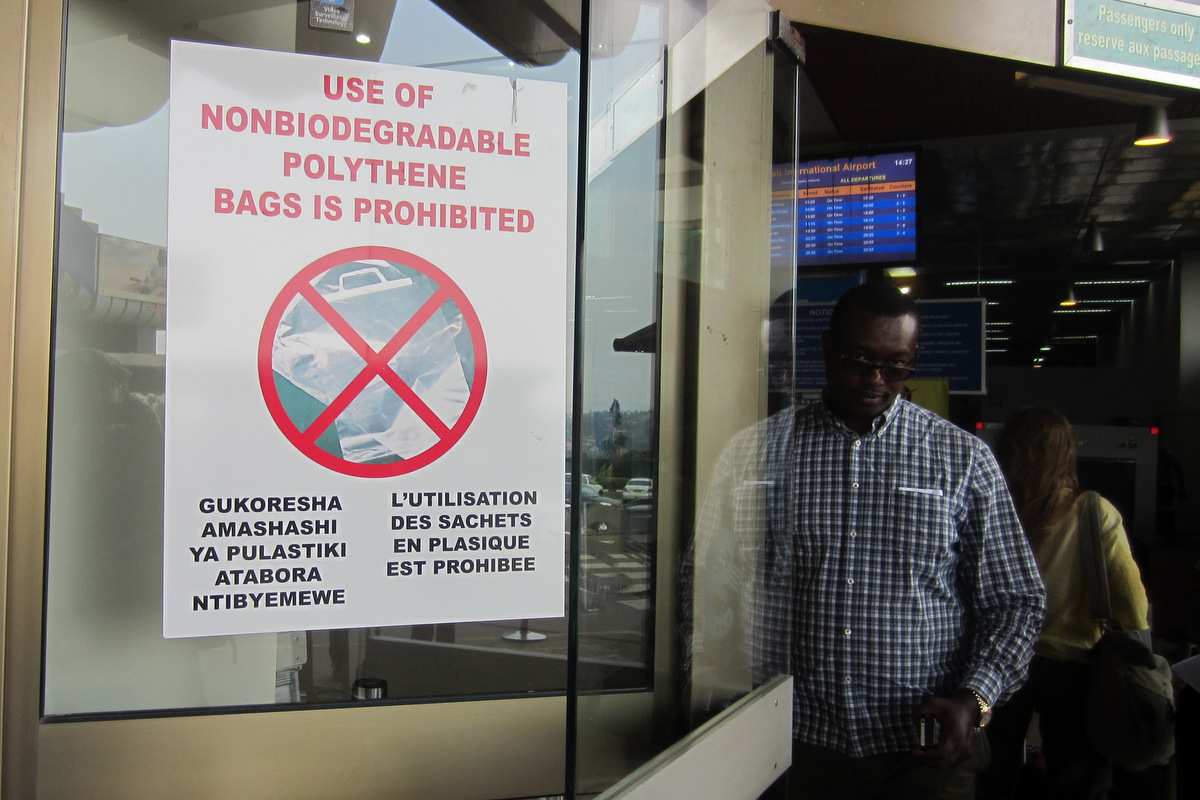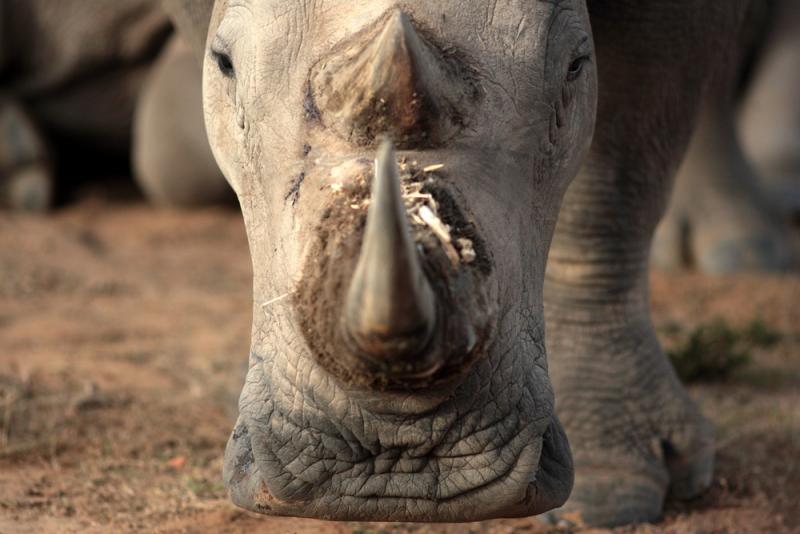UNEP's Jorge Laguna-Celis tells Terry Slavin why the UN agency now regards companies as crucial partners in efforts such as ending ocean plastics and fighting biodiversity loss
In the pantheon of UN agencies, UN Environment is a tiddler, with fewer than 800 employees (compared with 6,000 at UNDP), a modest budget ($339m in 2016), and headquarters in Nairobi, the only UN agency that is based in the Global South.

But the small agency is big on ambition, and under the leadership of Erik Solheim, the former Norwegian environment minister who replaced Achim Steiner as executive director in July 2016, UNEP has embarked on a campaign to dramatically increase its impact by drawing private sector know-how and funding into its work.
In an interview with Ethical Corporation, Jorge Laguna-Celis, who is director of governance affairs at the UN agency, said the UNEP has worked with companies since the 1990s on issues such as the Montreal protocol on protecting the ozone layer and in the 25-year-old UNEP finance initiative, which has drawn the banking sector into the global climate negotiations and launched initiatives such as the Principles for Sustainable Insurance, and the implementation of the G20 Task Force on Climate Related Risk with 14 leading banks.
The vision is very simple: every staff member has to devote resources to engaging with the private sector
Georg Kell, founding director of the UN Global Compact, says the UNEP FI has had “enormous positive impact on a truly global scale” and proven that UN entities can be “institutional innovators and pace-setters”.
But the UNEP’s involvement has deepened and broadened beyond the finance sector since the Sustainable Development Goals were signed in New York in September 2015, and under Solheim’s leadership, Laguna-Celis said.
Working with business is now part of UNEP’s modus-operandi he says. “The vision of our executive director Erik Solheim is very simple. In every division, every staff member, in every project he or she is working on, has to devote resources to engaging with the private sector.”

Engagement with the private sector is front and centre in a major initiative launched last year, the Clean Seas campaign, a challenge to governments, civil society and the private sector to join in a concerted attack on marine plastic waste. It explicitly calls on the latter to commit to reduce plastics use in production, product design and packing improve, measure and report actions to reduce marine plastic litter and microplastics and work with partners to raise the profile of this issue with their audiences
Coca-Cola is among the companies with which the UNEP is working closely. The world’s biggest beverage company, which uses 120bn bottles a year, announced in January new targets to collect and recycle all its packaging by 2030 and to lift its use of recycled content in its packaging from 10% to 50% by that date.
Similar commitments have been made by Unilever, Mars, PepsiCo, Procter & Gamble and Marks and Spencer.
We’ve learned that when we engage the private sector, UN Environment has to be an egoless leader
Such has been the groundswell of support that it is difficult to see UNEP’s fingerprints. Certainly there is no UNEP logo or slogan in evidence. But Laguna-Celis says this is intentional.
“One of the things we’ve learned from the new strategy is that when we engage the private sector, UN Environment has to be an egoless leader. It is something we stress in all our meetings with the private sector.”
He said this is because companies want to take credit for their action, rather than be seen as following the lead of multilateral organisations or regulators.

“With the Clean Seas campaign you don’t see the big logo of the UN Environment programme there. You see a slogan, an idea on which anyone can come on board whether it’s a UN organisation, a private sector company or a government.”
He adds: “We have provided the infrastructure for this campaign, the resources and the intellectual backing but we then hand it over and ensure that it is owned. We don’t want to be seen leading aggressively.”
Governments are also critical actors in the war on plastic. More than 40 governments have heeded the call to legislate against single-use plastic bag use and microplastics, including France, China, and Italy, Rwanda, Eritrea, and Kenya.
Many of our activities are in the Global South because environment and development are inextricably linked
African governments were earliest to take action, with punitive plastic bag bans in place for over a decade in Rwanda and Eritrea, and Kenya finally passing legislation last year after several attempts. Is it any coincidence that the UNEP is headquartered in Nairobi?
“The fact that we are located in Africa, and that many of our activities are in the Global South is because environment and development are inextricably linked,” says Laguna-Celis. “We have a special responsibility in Kenya, not only because it’s our headquarters, but because of the leadership taken by President [Uhuru] Kenyatta in his last term to ban plastic bags.”
He said the UNEP has helped garner international support for the move, though there has been criticism from some NGOs that cracking down of plastic packaging disproportionately harms the poor.

For example, one of the biggest sources of ocean plastic is small sachets of difficult to recycle plastic and aluminium. Consumer goods companies like Unilever and Procter & Gamble sell hundreds of billions of sachets in developing countries each year, because they allow poorer people to buy small quantities of otherwise unaffordable products, although Unilever announced last year that it had developed a technology called CreaSolv to cost-effectively recover and recycle the plastic in the sachets.
Laguna-Celis accepts that the war on plastic could have some unintended consequences. “But on the other side, Kenyans are very inventive people. They have an incredible capacity to develop new types of carrying containers … Nothing is wasted. Sometimes a plastic bottle has many, many lives, with people refilling or repurposing it.”
We are working to ensure that the private sector is aware of the business opportunities in a large global partnership
Another area where UNEP has looked to the private sector is in funding for the protection of biodiversity and forests.In September 2016 UNEP partnered with BNP Paribas, ADM Capital, The World Agroforestry Centre and the Indonesian government to launch the Tropical Landscapes Finance Facility to invest in projects to improve smallholder productivity and reduce deforestation in Indonesia.
This was followed by a $1bn deal last year with Rabobank of the Netherlands to fund land restoration and forest protection initiatives as part of the bank’s sustainable food campaign. And at December’s One Planet conference in Paris it announced another milestone agreement with BNP Paribas to collaborate on raising $10bn in funding for renewable energy access, agroforestry, water access and responsible agriculture through sustainable finance facilities.
Laguna-Celis says the UNEP’s role in these partnerships is to act as a facilitator and catalyst. “We can provide politicians with the alternatives that have worked elsewhere, the lessons learned from our experience and our scientific knowledge and ensure we have an engaged government; with investors we can lower the risk of their transactions by ensuring there are guarantees by other international institutions or specific governments so we can unlock the potential of private finance to support an economically sustainable objective.”

UNEP is working with the private sector to tackle illegal wildlife trade. (Credit: Jonathan Pledger/Shutterstock)
Going forward, Laguna-Celis says, UNEP wants to scale up its work on biodiversity, which he says has not received the same amount of attention as climate change.
“We are working very closely with partners in the convention on biodiversity to ensure that the private sector is aware of the business opportunities in a large global partnership for protecting biodiversity.”
The organisation has taken a lead on tackling the illegal trade in wildlife, working with partners such as Beijing Airports, Kenya Airways and Emirates through the Wild for Life partnership.
It is also working with the government of Botswana and the World Bank to place a financial value on biodiversity and wildlife in natural capital accounting, particularly in the value it brings to tourism.
Laguna-Celis, who will be speaking at Ethical Corporation’s Responsible Business Europe Summit in June, says the message he wants to bring to sustainability leaders is that that they should “sit at the table as equal partners with decision makers and with us. We have seen the power that comes from partnering with companies that have a drive and willingness to change and lead their sectors towards more sustainable business models. We want to work with them and help them achieve their goals.”
UN Environment SDGs UN Global Compact ocean plastics biodiversity green finance Indonesia Tropical Landscapes Finance Facility coca-cola Wild for Life plastic bag ban BNP Paribas Rwanda Kenya

